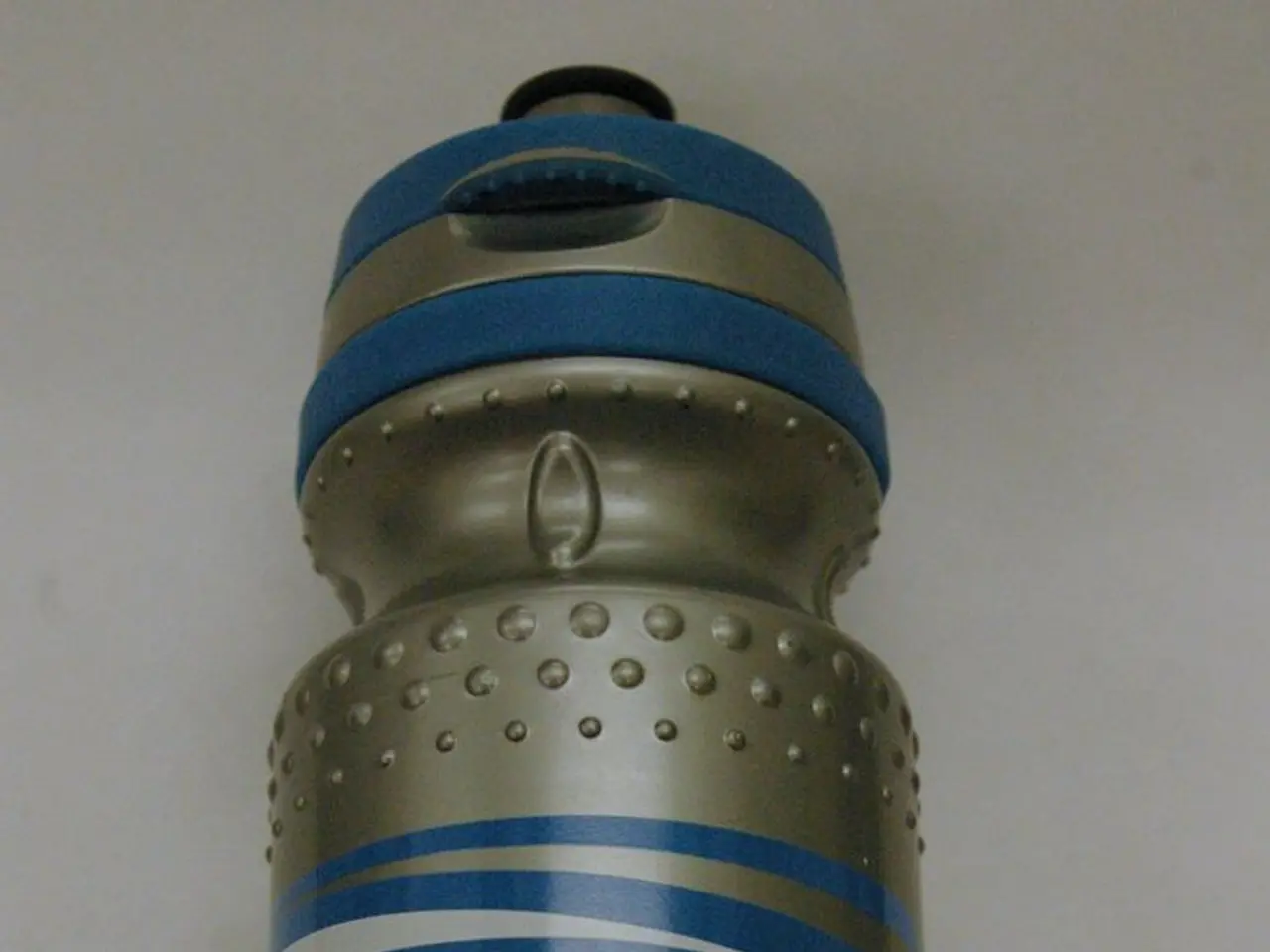Dubai-based health researchers unveil the initial Arab Pangenome Reference, a significant stride forward for precision medicine within the region.
In a groundbreaking development, scientists at the Mohammed Bin Rashid University of Medicine and Health Sciences (MBRU) have published the first-ever Arab Pangenome Reference. This comprehensive genome reference, significant for Arab populations, fills a critical gap in global genetic databases that have long underrepresented Arabs [1][2][4].
The research, conducted entirely in-house at MBRU's Center for Applied and Translational Genomics (CATG), was built using high-quality DNA sequencing data from 53 individuals of diverse Arab descent residing in the UAE. The study, published in the peer-reviewed journal Nature Communications, reveals over 110 million base pairs of novel DNA sequences, nearly 9 million small genetic variants, and over 235,000 large structural differences unique to Arab genomes [1][2][3][4].
Dr. Mohammed Uddin, Director of CATG and senior author of the study, noted the study's contribution to the scientific understanding of Arab genomics. "The Arab Pangenome Reference aligns with the UAE's National Genome Strategy, a 10-year plan launched in 2023, which aims to advance preventive and precision healthcare through genomic research," he said [1][4].
The Arab Pangenome Reference underpins precision medicine and personalized healthcare in the UAE and the broader Arab region by enabling more accurate genetic variant detection tailored to the population’s unique genomic makeup. It supports the UAE’s National Genome Strategy and contributes to MBRU's research strategy, ensuring local populations are represented in global health advancements [1][4].
Importantly, the Arab Pangenome Reference allows for the development of more precise diagnostic tools and therapies specific to Arab populations. For example, it revealed a duplicated gene, TAF11L5, unique to Arabs, which could have implications for understanding disease risk and treatment responses. Additionally, the project developed a bioinformatics tool, PanScan, to analyze complex human pangenomes, facilitating detection of novel DNA changes and genetic structures [2].
PanScan, an open-source tool publicly accessible on GitHub, facilitates the detection of gene duplications and complex DNA structures. This tool, along with the study's findings, is now available for the global scientific community's use [2].
Dr. Hanan Al Suwaidi, Acting Provost at MBRU, was a co-author of the study. She emphasized, "The creation of this population-specific genome reference enhances genomic equity, improves variant detection accuracy in Arabs, and establishes a foundation for research and healthcare practices that reflect the genetic diversity of the region rather than relying on global references biased toward non-Arab populations" [3].
The study reinforces Dubai Health's commitment to world-class research and innovation in healthcare. The Arab Pangenome Reference advances regional precision medicine by providing a tailored genomic resource that enables personalized diagnosis, treatment, and disease risk assessment for Arab individuals, fostering equitable healthcare and scientific progress within the region [1][2][3][4].
For further details, the full study can be accessed at Nature Communications.
[1] Mohammed Bin Rashid University of Medicine and Health Sciences (MBRU). (2023). Arab Pangenome Reference: A Resource for Precision Medicine in the UAE and Arab Region. Nature Communications.
[2] Mohammed Bin Rashid University of Medicine and Health Sciences (MBRU). (2023). New Bioinformatics Tool, PanScan, Facilitates Detection of Novel DNA Changes and Genetic Structures. Medical Press.
[3] Mohammed Bin Rashid University of Medicine and Health Sciences (MBRU). (2023). Arab Pangenome Reference: A Step Towards Genomic Equity and Personalized Healthcare. The National.
[4] Dubai Health Authority. (2023). Dubai Health Authority Supports Groundbreaking Research in Arab Pangenome Reference. Press Release.
- The Arab Pangenome Reference, published in the journal Nature Communications, represents a significant innovation in the field of science, particularly health and genomic research, as it is the first-ever Arab Pangenome Reference and fills a critical gap in global genetic databases.
- Conducted at the Mohammed Bin Rashid University of Medicine and Health Sciences' Center for Applied and Translational Genomics, the study reveals over 110 million base pairs of novel DNA sequences, nearly 9 million small genetic variants, and over 235,000 large structural differences unique to Arab genomes.
- The Arab Pangenome Reference supports the UAE’s National Genome Strategy, a 10-year plan launched in 2023, and contributes to the university's research strategy by ensuring local populations are represented in global health advancements, leading to more accurate genetic variant detection tailored to the population’s unique genomic makeup.
- The creation of this population-specific genome reference, such as the Arab Pangenome Reference, enhances genomic equity, improves variant detection accuracy, and establishes a foundation for research and healthcare practices that reflect the genetic diversity of the region, rather than relying on global references biased toward non-Arab populations.




